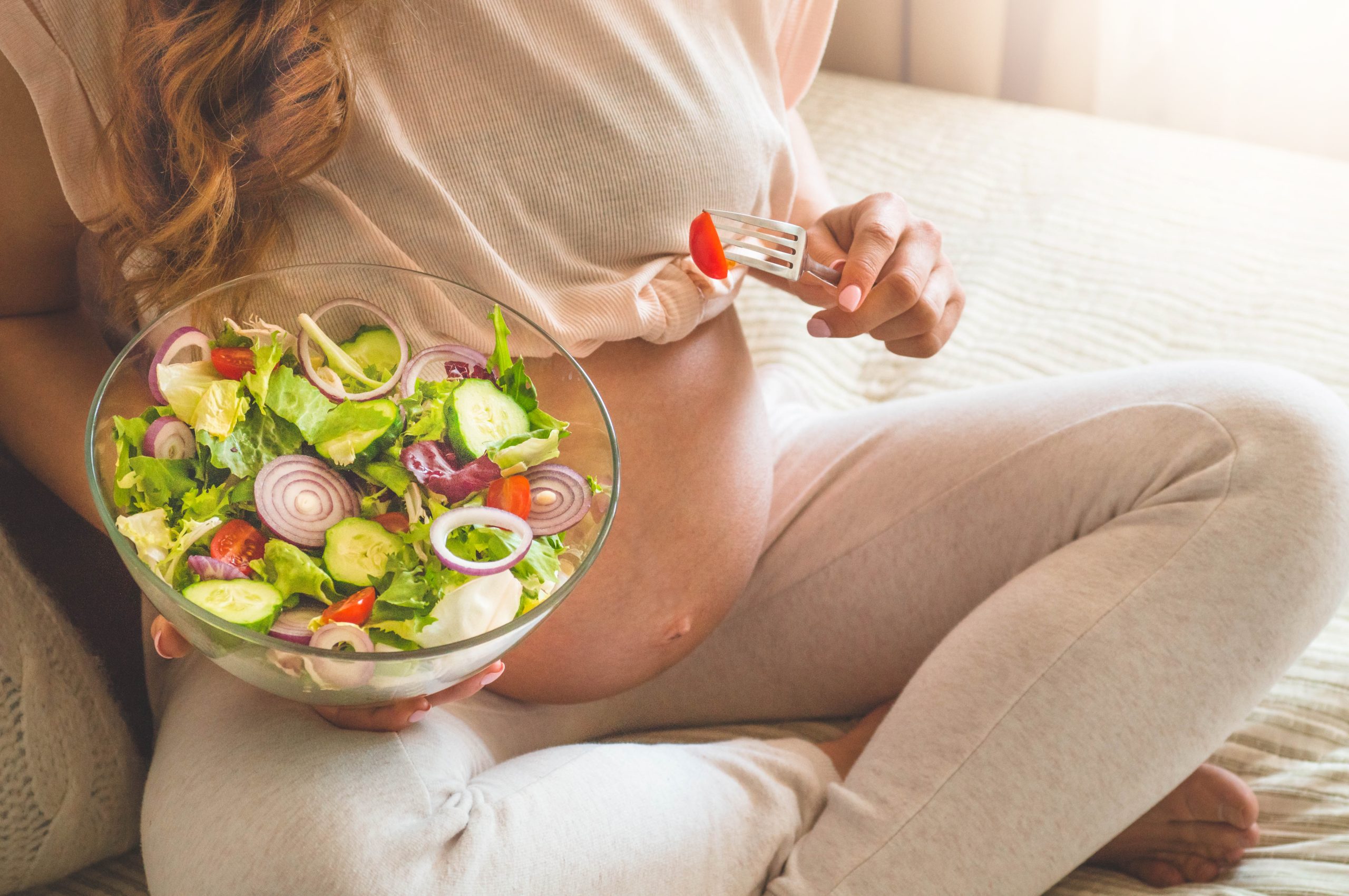Monday to Friday – 5pm to 8pm | Saturday – 10am to 1pm | Sunday – Closed
A-289, Sector-43, Noida | +91 98106 40531

Dr Puja Jain Dewan
sr gynecologist | obstetrician | Laparoscopic Gyne Surgeon
MBBS | MD | DGO | FMAS | FICOG
Significance of Nutrition During Pregnancy

Pregnancy is a transformative journey that brings about significant changes in a woman’s body. Proper nutrition during this period is paramount, as it directly influences the health and development of the growing baby and supports the well-being of the mother. This comprehensive guide aims to shed light on the importance of good food during pregnancy, highlighting essential nutrients, recommended food sources, and practical dietary tips to ensure a healthy pregnancy.
The Significance of Nutrition During Pregnancy
A balanced diet during pregnancy is crucial for several reasons:
Fetal Development: Adequate nutrition provides the necessary building blocks for the baby’s organs, tissues, and overall growth.
Reduced Risk of Complications: Proper dietary habits can lower the chances of pregnancy-related issues such as preterm birth, preeclampsia, and gestational diabetes.
Maternal Health: Consuming nutrient-rich foods supports the mother’s body as it undergoes various changes and prepares for childbirth and lactation.
Essential Nutrients and Their Roles
Understanding the key nutrients required during pregnancy can help in making informed dietary choices:
1. Folate (Vitamin B9)
Role: Vital for preventing neural tube defects in the developing fetus.
Sources: Leafy greens, citrus fruits, beans, and fortified cereals.
2. Iron
Role: Supports the increase in blood volume and prevents anemia, ensuring adequate oxygen supply to the baby.
Sources: Lean meats, spinach, beans, and fortified grains.
3. Calcium
Role: Essential for the development of strong bones and teeth in the baby.
Sources: Dairy products, fortified plant-based milks, and leafy greens.
4. Protein
Role: Crucial for the growth of fetal tissue, including the brain, and aids in breast and uterine tissue development in the mother.
Sources: Lean meats, poultry, seafood, eggs, beans, and nuts.
5. Omega-3 Fatty Acids
Role: Important for the baby’s brain and eye development.
Sources: Fatty fish like salmon and sardines, walnuts, and flaxseeds.
6. Fiber
Role: Helps prevent constipation, a common issue during pregnancy.
Sources: Whole grains, fruits, vegetables, and legumes.
7. Vitamin D
Role: Works with calcium to support the development of the baby’s bones and teeth.
Sources: Fortified dairy products, fatty fish, and exposure to sunlight.
8. Choline
Role: Supports brain development and helps prevent neural tube defects.
Sources: Eggs, lean meats, fish, dairy products, and peanuts.
Recommended Dietary Practices
To ensure optimal nutrition during pregnancy, consider the following guidelines:
Balanced Meals: Aim for a variety of foods from all food groups to meet nutrient needs.
Frequent, Small Meals: Eating smaller, more frequent meals can help manage nausea and keep energy levels stable.
Hydration: Drink plenty of water throughout the day to support increased blood volume and amniotic fluid.
Limit Processed Foods: Reduce intake of processed and high-sugar foods to avoid unnecessary weight gain and potential complications.
Prenatal Vitamins: Incorporate prenatal vitamins as recommended by healthcare providers to fill any nutritional gaps.
Foods and Substances to Avoid
Certain foods and substances can pose risks during pregnancy and should be limited or avoided:
Alcohol: No amount of alcohol has been deemed safe during pregnancy.
Caffeine: Limit caffeine intake to less than 200 mg per day (about one 12-ounce cup of coffee).
Raw or Undercooked Foods: Avoid raw seafood, eggs, and meats to reduce the risk of infections.
Unpasteurized Products: Steer clear of unpasteurized dairy products and juices to prevent exposure to harmful bacteria.
High-Mercury Fish: Limit consumption of high-mercury fish like shark, swordfish, and king mackerel.
Addressing Common Dietary Concerns
Morning Sickness: Opt for bland, easy-to-digest foods like crackers and ginger tea. Eating small, frequent meals can also help.
Heartburn: Avoid spicy and fatty foods. Eating slowly and not lying down immediately after meals can alleviate symptoms.
Food Aversions and Cravings: While it’s okay to indulge cravings occasionally, aim to find nutritious alternatives when possible.
Embracing a nutritious diet during pregnancy is one of the most impactful steps a mother can take to ensure her health and that of her baby.
Important Links
Pregnancy Care
Gynecology Treatments
laproscopic surgeries
Dewan's Ortho Gyne Clinic
Made with ♥ by Grey Matter Ink
